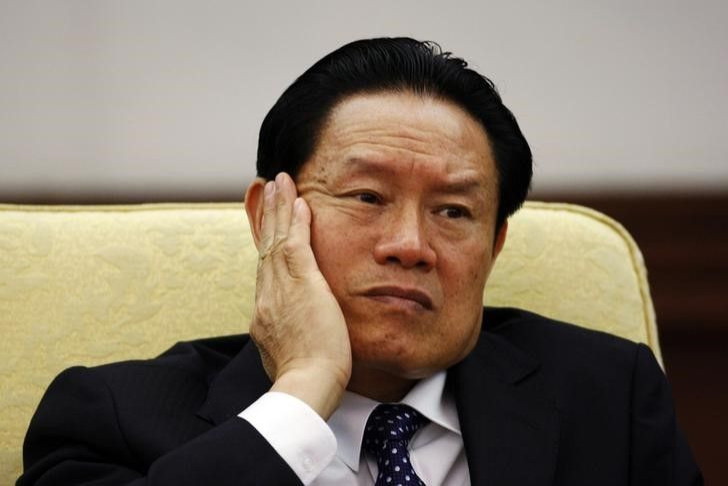Zhou Yongkang, China's Ex-Security Chief, Under Investigation For Corruption

Zhou Yongkang, China’s former security chief, is under investigation on suspicion of corruption, China’s state news agency said in a statement Tuesday.
The Xinhua news agency was sparse on details and didn’t specifically say what Zhou is accused of. But the announcement did say Zhou, 71, may have committed a “serious disciplinary violation” — a phrasing that China has used in the past to mean corruption. The statement said only that the Communist Party's Central Commission for Discipline Inspection will investigate Zhou and that the decision to go forward with an investigation “was made in accordance with the [Communist Party of China] Constitution and the CPC discipline inspection authority’s case investigation regulation.”
Before Tuesday's statement, the investigation into Zhou, who retired in 2012, had “been secretive and unconfirmed by the government, although known among party insiders and reported abroad,” according to the New York Times. The BBC said Zhou hasn’t been seen in public for months.
The Times said the move to investigate Zhou may be a way for President Xi Jinping to flex his muscles on corruption by China’s elite. Xi has made rooting out corruption among senior party members one of his top priorities. The Times noted that Zhou, a former Politburo Standing Committee member, is the most senior Chinese Communist Party member to face a formal investigation.
As China’s former security chief, Zhou was in charge of the police, civilian intelligence and the justice system. According to the Sydney Morning Herald, he accumulated too much power, and his post was downgraded.
A number of associates and other people close to Zhou have faced criminal charges and were expelled from the party, including Guo Yongxiang, a former Zhou aide and governor of Sichuan. He was accused of accepting bribes and using his position to benefit his son and others. He was also accused of being “morally corrupt” and having an extramarital affair.
© Copyright IBTimes 2024. All rights reserved.




















